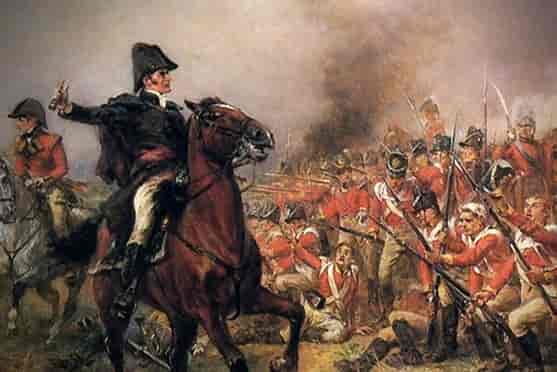What was the Battle of Waterloo?
The Battle of Waterloo was the final combat of the Napoleonic Wars (series of military conflicts during the government of Emperor Napoleon Bonaparte in France) that ended French rule over the European continent and caused drastic changes in the territorial borders and in the balance of existing power in Europe.
The Battle of Waterloo was fought on June 18, 1815 in the vicinity of Waterloo (present-day Belgium), it is considered one of the decisive moments in modern history.
The fight confronted about 122 thousand men of the French Empire and 93 thousand of the allied forces, which arose between the countries of the United Kingdom, the Netherlands, the Kingdom of Prussia, the Kingdom of Hannover (German dynasty) and the Kingdom of Nassau (in Bahamas).
The victory was achieved by the alliance. Between both groups, a total of 100,000 combatants died.
After the meeting of the congress of Vienna, in Austria, it was decided to reestablish the European borders and politically organize the entire continent, for which the alliance between the European countries called the Seventh Coalition was formed.
Seventh Coalition : alliance formed between Great Britain, Sweden, Holland, Prussia, Russia, Spain and Germany, under the command of Arthur Wellesley.
Although Napoleon Bonaparte had the support of faithful officers and soldiers of the French imperial army, he could not avoid the union of the allied armies.
Finding himself cornered, he decided to take Brussels and face the coalition; however, he was defeated by this alliance, a fact that marked the end of his Empire.
Causes and consequences of the Battle of Waterloo
Causes
As the main cause of the Battle of Waterloo we can highlight its emergence within the tense context in which the European territory was found.
France was under the command of Napoleon Bonaparte, who had conquered territories across the entire continent and intended to continue expanding his empire.
Faced with these conquests and the imminent wars they were causing, various countries decided to form the Seventh Coalition, with the aim of defeating the Napoleonic Empire.
Finally, after Napoleon refused to surrender and return the lands, the military confrontation took place in Waterloo, Belgium . There Bonaparte was defeated by the Seventh Coalition.
Consequences
The main effects produced by the Battle of Waterloo were the following:
- Napoleon was defeated and exiled to the island of Santa Elena, where he would later die in 1821.
- The Napoleonic Empire was ended and the French monarchy , which Napoleon had defeated, was restored .
- The borders conquered by Napoleon Bonaparte returned to their previous state , that is, territories taken from various countries in Europe were returned to them.
- End of the Napoleonic wars, which brought a period of peace to Europe.
Importance of the Battle of Waterloo
The importance of the Battle of Waterloo in history lies in having put an end to the period of the Napoleonic Empire and its military hegemony. The borders returned to their previous state and European politics was restored.
Furthermore, after the defeat of King Louis XVIII it seemed impossible to re-establish the monarchy in France, but the battle of Waterloo and the defeat of Napoleon managed to restore the king along with his policies.
Shortly after his defeat at Waterloo, Napoleon was arrested and sent into exile on the island of Saint Helena, where he died six years later.






